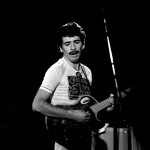 Different political imaginaries are distinguished, among other ways, by the kinds of subject or agent that they produce or project. In less industrialized societies, where the proletariat is neither numerically large nor politically significant, revolutionary Marxism runs up against a problem: without sufficient gravediggers, who gives capitalism the burial it deserves?
Different political imaginaries are distinguished, among other ways, by the kinds of subject or agent that they produce or project. In less industrialized societies, where the proletariat is neither numerically large nor politically significant, revolutionary Marxism runs up against a problem: without sufficient gravediggers, who gives capitalism the burial it deserves?
Che Guevara outlines the birth of a new subject, the “new man.” This is for the most part a future subject, whose arrival is still to come; this is a “21st Century Man,” who will put behind him the “decadent and morbid” twentieth century. Indeed, there is something messianic about this figure, who will one day redeem a fallen history.
10a. A Decade of Revolution in Cuba
Che Guevara outlines the birth of a new subject, the “new man,” who will put behind him the “decadent and morbid” twentieth century.
Then there is also a podcast for this week, as well as student-made videos.
- Alexander Dawson, “A Decade of Revolution in Cuba”. Latin America Since Independence: A History with Primary Sources. 2nd Edition. New York: Routledge, 2014. 243-280.
Note that each chapter of the textbook comes with online resources on the publisher's website. Simply click on the relevant tab for this week's reading.
Documents:
- Ernesto "Che" Guevara, Letter from Major Ernesto Che Guevara to Carlos Quijano, editor of the Montevideo weekly magazine Marcha (March, 1965). (Dawson 259-272; translated as "Man and Socialism in Cuba"; Spanish original)
- Senel Paz, “El Lobo, el Bosque, y el hombre nuevo” (excerpt). Trans. Robert Forstag. (Dawson 272-277)
- Yoani Sánchez, “Architecture of the Emergency” (October 11, 2009). Trans. Mary Jo Porter and Yoani Sánchez. (Dawson 278-279) Originally posted at: http://lageneraciony.com/arquitectura-dela-urgencia/
The Counter Culture in Latin America
Alec Dawson (Professor, History and International Studies, Simon Fraser University), author of Latin America Since Independence: A History with Primary Sources, explores the ways in which global phenomena associated with the Counter Culture were experienced in Latin America during the late 1960s.
This podcast is designed to complement chapter eight of his textbook.
- Karl Marx and Friedrich Engels, “Manifesto of the Communist Party”. Marxists Internet Archive.

